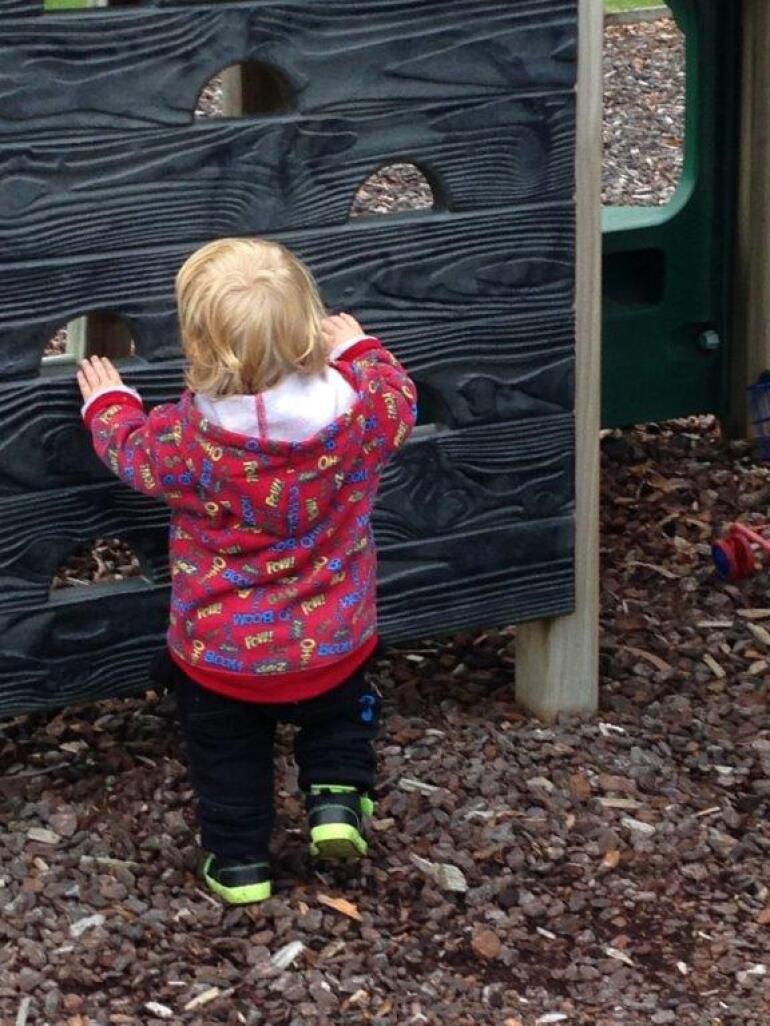News And Events

Developing Self-Esteem
19 August 2015It doesn’t matter how old we are – we all like to feel good about ourselves. We all like to feel special; think of how you feel when someone thanks you for helping, appreciates the home baking or the job you did fixing the plumbing.
As parents and caregivers, the messages we give to children when they are moving and learning can help develop or harm self-esteem. It is important we are active role models for the children in our care; children develop good feelings about themselves when adults say and do positive things while they are active.
Being active, learning through experience and feeling confident all go together. Young children enjoy doing simple activities over and over again; learning through repetition. Jumping over the cracks on the footpath (they learn to two foot jump) standing on one foot to kick a balloon (develops balance).
Words are powerful! “ you chose a great book for us to read today”, “what a fantastic castle you built out of blocks”, “you looked after Jessie really well on his first day” go a long way to making children feel special and enjoyable to be around. These thoughts travel with them into adolescence and adulthood; similarly negative comments will have a profound effect on what they think about themselves.
Think positive thoughts as often as you can; feeling loved and wanted, as well as confident and capable are all feelings children develop while living in positive and caring environments filled with exciting and happy experiences.
As parents and caregivers, the messages we give to children while they are moving and learning can either develop or harm self-esteem. Thanks for information taken from Sport NZ’s Active Movement resource
Try the following to help develop children’s self-esteem:
- If a child tries an activity they could hurt themselves doing, try and tell them in a positive way “that looks tricky, how can we do it safely?” and work it out together.
- Tell children what they did well “you had great balance walking over that beam”, “I loved the way you bent your knees when you jumped off the box”.
- Tell them about the things they do well rather than things they need to work on.
- Do activities with your children. If they see you doing it, they are more likely to want to try and feel good when successful. Doing activities together give you something nice to talk about- how you both felt when you did it and what went well.
- Cuddle your child to reinforce he has done the activity well – actions speak louder than words. As well as nurturing a feeling of acceptance, it is also a sign you approve; an important part of building self-esteem.
- When doing an activity, allow children to explore and try different ways of doing it; this encourages independence and self-esteem.
- Use hand signals like high fives and a thumbs up to convey appreciation of an activity done well.
Remember your body language; your comments can often say you are interested but your body language says otherwise. Children very quickly read the messages you send and may not involve you in their achievements anymore; your actions should reinforce not contradict what you say. Always notice the good and special, not just the bad and comment on it. If we constantly criticise or fix it, they may not bother trying it again.
Article contributed by Kirsty Carling – Early Childhood Advisor at Sport Bay of Plenty. For more information, visit www.sportbop.co.nz


